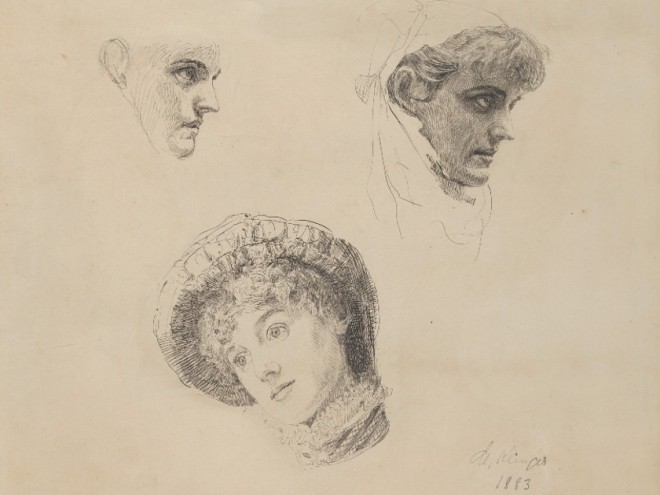With delightful depth, suspense, and humor, Vishny swoops readers into a fantastical version of the early twentieth century, when New York City is filled with both mortals and mythological creatures. Clara and Molly, two estries or female Jewish vampires, have existed for 150 years and now present as sisters in their late teens. They run the Grand Dame Cinema in one of the classic Second Avenue theaters that used to make up the Yiddish Rialto.
The estries both let down their hair to turn into owl beings in order to feed, but there are many tensions between them. Certain that desire caused their deaths, strict Clara believes in two rules to keep them safely under the radar: No Romance and Only Feed on Jews, the latter because of the long history of blood libel. Molly, a free spirit who misses participating in the live theater of her human past, has fallen in love with Anat, a first-year NYU drama student, with whom she has shared her and Clara’s secret. Clara is exasperated with Molly as well as with Boaz, a young Syrian Jew from Brooklyn who works in their box office and is always running late. Still, despite her frustration, she finds herself attracted to him. It turns out that Boaz, who has inherited his aunt’s ability to see and secretly speak with the dead (who comically, and sometimes frighteningly, often stop him in the streets) has a crush on her, too. Even the powerful Ashmodai, Prince of Demons — who Clara visits to pay the rent in spookily elegant Gehinnom, which is disguised as a nightclub between derelict buildings in the Bowery — tells her to loosen up.
Boaz, currently at loose ends as to what to do with his life, tries to rescue Anat, who seems to have been taken over by a dybbuk while working on a stage production of Allen Ginsberg’s Howl. “Ikh vil nisht brenen,” Anat, who does not speak Yiddish, begins to cry — “I do not want to burn” — and shortly thereafter she disappears. Molly, frantic to find her girlfriend, doesn’t trust Boaz at all and thinks that her sister is blinded by the chemistry Clara will not admit to herself. Meanwhile, Boaz’s friend, who enjoys hearing about Boaz’s supernatural experiences, gets them all into trouble with his own misguided interference.
Gehinnom, sheydim, dybbuks, ghosts of young women flying from the windows where the Triangle Shirtwaist fire happened in 1911, flats from a production of The Yiddish Tempest stored in a closet — Vishny taps into the timeless magic of Jewish folklore to explore the history of the Lower East Side. Subtly interweaving historical references, deftly guiding readers without a glossary and with Yiddish phrases that are not always immediately translated, Vishny raises the cultural bar in an exotic adventure through which young adults and adults can romp.
Sharon Elswit, author of The Jewish Story Finder and a school librarian for forty years in NYC, now resides in San Francisco, where she shares tales aloud in a local JCC preschool and volunteers with 826 Valencia to help students write their own stories and poems.




